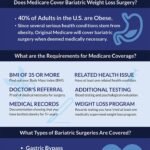How Much Does Weight Loss Surgery Cost
How Much Does Weight Loss Surgery Cost: The Truth Unveiled: The cost of weight loss surgery can range from $15,000 to $25,000. This price varies based on location, type of procedure, and healthcare provider.
Weight loss surgery, known as bariatric surgery, is a significant investment in your health and well-being. Exploring the financial aspect is crucial, as it can be a barrier for many. The price tag reflects not just the surgery itself, but also pre-operative tests, hospital stay, surgeon’s fees, and follow-up care required for successful outcomes.
Insurance coverage for this type of surgery varies widely, with some policies covering a portion or the full cost if specific medical criteria are met. It’s important for prospective patients to consider the long-term health benefits against the initial expenses. Financing options and medical loans may also be available to help manage the costs, making this life-altering procedure more accessible to those in need.
The Price Tag Of Weight Loss Surgery
Embarking on a weight loss surgery journey is a big step. One of the first questions is: How much will it cost? The price tag can vary. It’s influenced by the type of surgery, location, and insurance coverage. Let’s dive into the cost breakdown of different procedures.
Varieties Of Bariatric Procedures
Several weight loss surgeries are available, each with its benefits and costs. Common options include:
- Gastric Sleeve – Removes a portion of the stomach.
- Gastric Bypass – Creates a small stomach pouch and reroutes the intestines.
- Lap-Band – Places a band around the stomach’s upper part.
- Gastric Balloon – Inserts a temporary balloon into the stomach.
- Duodenal Switch – Combines stomach reduction and intestinal rerouting.
Cost Comparison By Procedure
Each weight loss surgery has its price. Insurance may cover some costs. Without insurance, expenses are out-of-pocket.
| Procedure | Average Cost |
|---|---|
| Gastric Sleeve | $15,000 – $25,000 |
| Gastric Bypass | $20,000 – $30,000 |
| Lap-Band | $15,000 – $20,000 |
| Gastric Balloon | $8,000 – $12,000 |
| Duodenal Switch | $25,000 – $35,000 |
Costs can include pre-surgery tests, the surgery itself, and follow-up care. Remember these are estimates. Get a personalized quote for accurate pricing. Talk to surgeons and verify with insurance providers.
Determining Factors In Surgery Costs
Exploring the cost of weight loss surgery reveals several key factors. These elements combine to determine the final price tag. Potential patients should consider the surgical technique, hospital stay, and location.
Surgical Technique And Complexity
Different surgical methods demand varying levels of skill and resources. These methods range from gastric sleeve to gastric bypass, each with unique complexities.
- Gastric Sleeve: Less complex, potentially more affordable.
- Gastric Bypass: More intricate, often at a higher cost.
- Lap-Band: Adjustability affects price.
The choice of technique impacts both risk and recovery times. More complex surgeries drive up costs.
Hospital Stay Duration
The length of time you spend in the hospital affects your bill. A longer stay means more charges for room, board, and care.
| Procedure | Typical Hospital Stay |
|---|---|
| Gastric Sleeve | 2-3 days |
| Gastric Bypass | 2-4 days |
| Lap-Band | Outpatient or 1 day |
Insurance may cover certain lengths of stay, reducing out-of-pocket expense.
Geographical Location And Market Rates
Where you live greatly influences surgery costs. High cost of living areas often mean higher surgery prices. Contrasts can even arise between nearby cities.
- Urban centers typically have higher rates than rural areas.
- Traveling for surgery can affect total cost but requires careful planning.
Research local and national averages to understand potential expenses. Insurers may negotiate different rates in various locations.
Insurance And Weight Loss Surgery
Understanding the cost of weight loss surgery can be daunting. Many patients turn to their insurance for financial support. To ensure you’re prepared, it’s crucial to know how insurance plays a part in covering bariatric procedures. This section will navigate the maze of insurance policies and coverage criteria.
Coverage Criteria For Bariatric Surgery
Insurance providers have specific rules for weight loss surgery coverage. Let’s explore the criteria you must meet to qualify:
- Body Mass Index (BMI): A BMI of 40 or higher often qualifies for surgery. A BMI of 35-39.9 might also qualify if certain health conditions are present.
- Health Assessment: A documented history of obesity-related health issues is necessary.
- Diet History: Evidence of weight management attempts is commonly required.
- Consultation: A psychologist or a psychiatrist’s evaluation may be needed.
- Program Participation: Involvement in a supervised weight loss program for a set time prior to surgery might be a prerequisite.
Navigating Insurance Plans
Navigating insurance plans can be complex but crucial for managing surgery costs. Here is a step-by-step guide to help you through this process:
- Benefit Verification: Check with your provider about weight loss surgery benefits.
- Pre-authorization: Obtain pre-authorization for surgery as required by your insurance plan.
- In-network Providers: Choose a surgeon and facility that are in-network to reduce out-of-pocket expenses.
- Out-of-pocket Costs: Learn about deductibles, copays, and coinsurance amounts.
- Exclusions: Verify if any aspect of your surgery or post-operative care is excluded from coverage.
- Appeal Processes: Understand the appeals process in case of a coverage denial.
Managing potential costs with insurance greatly reduces financial burden. Follow each step closely for the best chance at coverage.

Credit: mexicobariatriccenter.com
Out-of-pocket Expenses
Understanding the out-of-pocket expenses for weight loss surgery is crucial. Insurance may cover some costs, but often, there are expenses that you will need to pay yourself. These can vary widely depending on the type of surgery, facility, and even the location. Let’s break down the potential costs you might face during this life-changing journey.
Pre-surgical Assessments
Before the actual surgery, you’ll need a thorough evaluation. This includes medical tests and consultations with specialists to ensure you’re a good candidate for the surgery. Below is a list of likely pre-surgical assessments and their potential costs:
- Consultation fees: Meetings with your primary physician and surgeon.
- Laboratory tests: Bloodwork and other necessary medical evaluations.
- Psychological evaluation: Mental health screening, a standard requirement before surgery.
- Nutritionist visit: A diet plan to prepare for pre- and post-surgery adjustments.
Post-surgery Follow-ups And Nutrition Plans
After surgery, you will have follow-up appointments and need a specialized nutrition plan. These are critical for a successful recovery and adjustment to your new lifestyle. Here are some expenses you might incur:
- Surgeon visits: Regular check-ups to monitor your progress.
- Dietitian services: Tailored meal plans and guidance on your new diet.
- Support groups: Fees for joining weight loss support communities.
- Supplements: Vitamins and minerals to ensure proper nutrition.
Hidden Costs To Consider
Sometimes, there are costs that you might not immediately consider. From travel expenses to wardrobe updates, these can add up. Keep these hidden costs in mind:
| Cost Type | Examples |
|---|---|
| Travel and accommodation | If your surgery is not local, you may have travel and hotel stays. |
| New clothing | As you lose weight, you’ll need to update your wardrobe. |
| Gym membership | Investing in your physical fitness post-surgery may lead to additional costs. |
| Home modifications | You may need to adapt your living space for recovery and lifestyle changes. |
Investment In Health Or Financial Burden?
Weight loss surgery – two words that can change a life. But, this transformation also carries a price tag. Is it a smart investment in your future well-being, or could it strain your finances?
Cost-benefit Analysis
Let’s tackle the numbers. Weight loss surgery costs can range widely. It often depends on location, type of surgery, and included care. Below is a breakdown:
| Type of Surgery | Average Cost | Additional Costs (Possible) |
|---|---|---|
| Gastric Bypass | $23,000 | Pre-op labs, follow-up |
| Sleeve Gastrectomy | $14,900 | Supplements, dietitian |
Compare those costs with annual medical bills for obesity-related issues. Over time, surgery might seem less of a financial burden.
Long-term Health Savings
Surgery can lead to major savings on future medical expenses. Patients often see improvements in:
- Diabetes control
- Heart disease risk
- Joint pain reduction
After surgery, many folks wave goodbye to pricey medications and frequent doctor visits. With medical costs down, daily vitality up, this option shines as a true health investment.

Credit: www.medicaltourismco.com
Financing Your Surgery
Understanding the cost of weight loss surgery is a significant step on your journey to a healthier life. It’s crucial to plan for the financial aspect just as you would for the physical and emotional changes post-surgery. In this section, we’ll explore ways to finance your surgery. Boldly stride toward your goals with a strategy in place for managing the costs.
Medical Loans
Medical loans can bridge the gap between the surgery bill and your budget. They work like personal loans and are available through financial institutions. Approval depends on your creditworthiness. Here’s a quick look at the essentials:
- Interest Rates: Vary widely, with better credit leading to lower rates.
- Term Length: Flexible, typically from two to seven years.
- Loan Amount: Based on credit profile and income.
Payment Plans With Medical Providers
Many medical providers offer payment plans. This option allows you to pay for your surgery over time directly to the hospital or clinic. Plans often come with low or no interest, depending on the provider. Details to consider:
- Monthly Payments: Determined by total cost and payment period.
- Down Payment: May be required, varying by provider.
- Eligibility: Often not based on credit, but on agreement with provider.
Nonprofit And Assistance Programs
Nonprofit organizations and assistance programs can be lifelines for those struggling with the costs of weight loss surgery. Eligibility requirements often include financial need. Programs may cover a portion or all of the cost. Key points include:
- Application Process: Requires proof of financial situation.
- Support Scope: Varies by program, from partial aid to full coverage.
- Availability: Limited and competitive, with varying deadlines.
Cost By Country
The cost of weight loss surgery can vary widely across the globe. Each country has its own healthcare system and market rates. This affects how much patients pay for bariatric surgery. In this section, we explore the financial side of losing weight surgically around the world.
Top Destinations For Bariatric Surgery
Different countries have become popular for weight loss surgery. Reasons include expertise, cost, and quality of care. Patients often travel abroad to find the best balance between these factors.
- Mexico – Known for affordability and proximity to the USA.
- Thailand – Offers a combination of expert care and holiday setting.
- South Korea – Renowned for advanced medical technology and skilled surgeons.
- Turkey – Combines cost-effectiveness with high standards in healthcare.
- India – Attracts global patients due to low costs and English-speaking doctors.
Comparing International Costs
Prices for bariatric surgery differ from one country to another. They also depend on the type of surgery chosen. The table below showcases average costs in selected countries.
| Country | Average Cost (USD) |
|---|---|
| USA | $15,000 – $25,000 |
| Mexico | $4,000 – $6,500 |
| Thailand | $5,500 – $10,000 |
| South Korea | $9,500 – $12,000 |
| Turkey | $3,000 – $7,000 |
| India | $3,000 – $5,000 |
Awareness of the cost spectrum is vital when considering surgery abroad. Take account of travel, accommodation, and potential follow-up costs. Always ensure the facility chosen accredits properly and the surgeons are qualified.

Credit: mexicobariatriccenter.com
The Real Cost Of Not Going Through Surgery
When considering weight loss surgery, the financial aspect is crucial. Yet, the costs of avoiding surgery can often be higher, especially when looking at the bigger picture. Potential expenses not only touch upon immediate health concerns but also long-term financial implications. Let’s break down the real cost of not opting for weight loss surgery.
Physical Health Implications
Ignoring the possibility of surgery can lead to a host of health issues:
- Increased risk for diabetes, heart disease, and stroke
- Joint pain and arthritis due to excess weight
- Sleep apnea and breathing problems becoming more severe
- Higher chances of developing certain types of cancer
Financial Costs Of Chronic Weight-related Conditions
The price tag on continual medical care for obesity-related conditions can be staggering:
| Condition | Annual Cost Estimate |
|---|---|
| Diabetes | Up to $9,600 |
| Heart Disease | Approximately $20,000 |
| Arthritis | Around $2,600 |
| Breathing Problems | Up to $4,000 |
The ongoing expenses of medications, doctor visits, and potential hospital stays add up. Insurance may not cover all of these costs. With weight loss surgery, however, the chances of eliminating or reducing these conditions increase, effectively lowering long-term healthcare spending.
Preparing For The Financial Aspect
Undergoing weight loss surgery can present a significant financial commitment. Understanding and preparing for the cost is essential. This includes the surgery itself, pre-op tests, and follow-up care. Knowledge of the costs will help manage expectations and financial planning.
Budgeting For Surgery
Creating a budget for surgery is a crucial first step. Here are some pointers:
- Gather all the cost details: This includes hospital fees, surgeon’s fees, and other related expenses.
- Factor in recovery costs: Consider the time off work and any aftercare necessities.
- Check with insurance providers: Determine what portions of your surgery are covered.
- Look into financing options: If necessary, explore payment plans or medical loans.
Essential Questions To Ask Your Surgeon
Asking the right questions can help avoid unexpected costs:
- What is the all-inclusive cost of the surgery? This will help you plan the full budget.
- What costs might not be covered by my insurance? It’s crucial to know what you’ll need to pay out-of-pocket.
- Are there any hidden fees I should be aware of? Always better to be prepared for any additional costs.
- What follow-up care is required, and what will it cost? Follow-up care can be a significant part of the overall cost.
Post-surgery: Hidden Costs Unveiled
When you think you’ve tallied every expense for weight loss surgery, think again. Beyond the surgery itself lies a road less discussed; the journey of hidden costs after the procedure. Let’s unveil what your budget may not have considered.
Nutritional Supplements
Essential vitamins and minerals become a lifelong companion post-surgery. Absorption issues inherent to weight loss procedures make supplements non-negotiable.
- Multivitamins
- Calcium with Vitamin D
- B12 injections or lozenges
- Iron supplements
Expect monthly provisions ranging from $20-$100. Pinpoint your nutritional needs with a dietitian to tailor your supplement plan.
Body Contouring And Excess Skin Removal
Post weight loss surgery, your body changes in unexpected ways. Extra skin can be a reality, not just an aesthetic concern but also a health one.
| Procedure | Cost Estimate |
|---|---|
| Body contouring | $4,000-$15,000 |
| Excess skin removal | $8,000-$15,000 |
These procedures may necessitate multiple sessions, increasing budget needs significantly. This stage is not often covered by insurance, so plan with caution.
Frequently Asked Questions
How Do People Afford Weight Loss Surgery?
People afford weight loss surgery through insurance coverage, payment plans, medical loans, savings, or financial assistance programs. They may also seek cost-effective options abroad.
Does Insurance Ever Cover Weight Loss Surgery?
Yes, insurance may cover weight loss surgery if it is deemed medically necessary and the patient meets specific criteria set by the insurer.
How Much Is Stomach Surgery To Lose Weight?
The cost of stomach surgery for weight loss, known as bariatric surgery, typically ranges from $15,000 to $25,000. Insurance may cover some expenses.
How Hard Is It To Qualify For Weight Loss Surgery?
Qualifying for weight loss surgery typically requires a BMI of 40 or higher, or a BMI of 35 with obesity-related health conditions. Patients must also undergo a medical evaluation and commit to lifestyle changes. Eligibility varies by insurance provider and medical facility.
Conclusion
Navigating the costs of weight loss surgery can be complex, but it’s an investment in your well-being. With prices ranging due to procedures, locations, and insurance, planning for every expense is essential. Remember, improved health and quality of life are invaluable benefits that often justify the financial considerations of such a life-changing decision.










